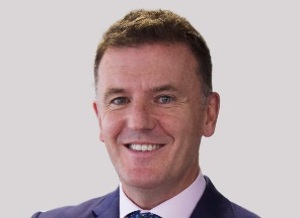Ethics matter in fintech era: CFA
Ethical considerations are becoming an increasingly important requirements of those involved in investment management and advice, the head of the CFA Institute in this part of the world says.
Thursday, November 23rd 2017, 5:59AM

Nick Pollard, the CFA Institute’s Asia Pacific managing director, has been in New Zealand for the society’s AGM.
The CFA mark is predominantly held by investment and fund managers. Pollard said it was designed to equip people with in-depth technical competence underpinned by a strong code of ethics.
He said this country was raising its game in terms of technical and behavioural competence requirements for advisers.
It had the potential to lead the region's financial advice sector with the right regulatory environment and a strong international reputation.
While in New Zealand, Pollard had a meeting with the Financial Markets Authority to talk about ways that their goals could be aligned.
New Zealand market participants seemed to have an ambition to be recognised globally for operating investment markets with highly competent investment advisers, he said.
Ethical considerations were an important part of the CFA curriculum, he said, and an increasing concern for market participants more generally.
“We have found enormous demand in the market in Asia to understand more about ethics, the constant dilemmas advisers find themselves in and better understanding of how to deal with those.”
The CFA Institute had established a specific ethics function. Conversations about ethics would be had with firms aligned to finance as well as those that were “pure finance”, he said. That would help to spread the message more widely.
He said the number of charter holders was growing 16% year-on-year. There are now 352 in this country. The CFA programme globally was established in 1962 and the New Zealand society was set up 15 years ago. APAC is the fastest growing region for CFAs.
There are about 300 candidates doing the programme at any given time in NZ.
“That’s a good sign of a healthy interest in what we’re doing," Pollard said.
The CFA mark had a global context rather than just a local application, Pollard said. It was perceived as being tough and could be used by practitioners to set themselves apart from the competition, he said.
Pollard said the mark should still be relevant even in a market with increasing fintech influence. “There’s plenty of miles left in the tank for human beings who are highly trained and excellent at giving investment advice.”
| « DIMS advisers face uncertainty... again | Mann on a mission to diversify financial advice » |
Special Offers
Comments from our readers
No comments yet
Sign In to add your comment
| Printable version | Email to a friend |



